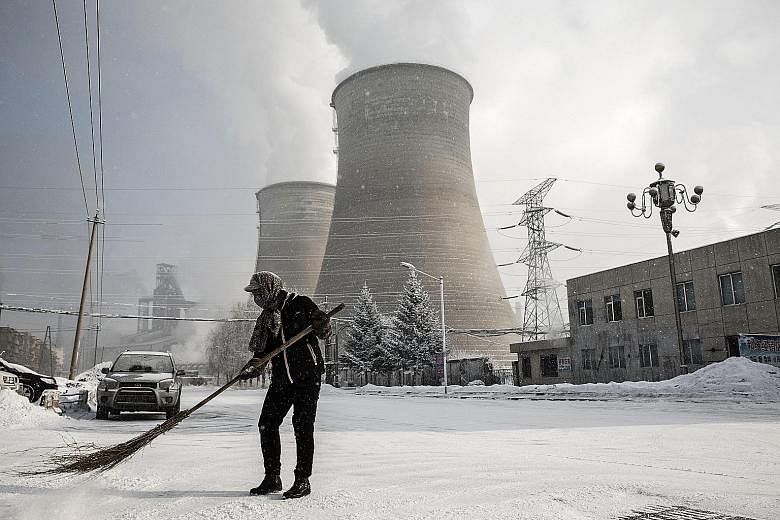TONGHUA (Jilin) • In a snow-covered valley in north-east China, an hour from the North Korean border, a street with brightly painted apartment blocks hides a story of fear and anger as dangerous to the country as its roller-coaster stock market or sliding currency.
This is the city of Tonghua in China's rustbelt, where a desperate handful of steelworkers have gathered each week outside the management office of their mill in freezing temperatures to demand months of wages they say they are owed. The answer, according to interviews with workers and residents, is always the same: There is no money.
Tonghua's story is repeated across China, where state-owned firms that were the bedrock of its industrial development have become its biggest burdens. Typically overstaffed, inefficient and indebted, they offer President Xi Jinping a stark warning of what the country could face if the millions of workers who depend on these lumbering corporations should lose their jobs, with nothing to fall back on.
Chinese leaders have vowed to reduce excess industrial capacity and labour in state enterprises even as they battle the slowest economic growth in a quarter of a century.
China will eliminate up to 150 million tonnes of steel- making capacity in the next five years, the State Council said in January. Eliminating that much steel capacity could lead to 400,000-500,000 job cuts and may fuel social instability, said Mr Li Xinchuang, head of the China Metallurgical Industry Planning and Research Institute.
China will set up a 100 billion yuan (S$21 billion) fund to help the unemployed, focusing mainly on the steel and coal sectors.
With mountains rich in iron ore and coal and fertile valleys, Jilin, Heilongjiang and Liaoning in the north-east formed the centre of Mao Zedong's first five-year plan in 1953, which proclaimed that grains and steel would be the cornerstones of Communist China.
Underpinning it all were the new steel mills, fed by the region's coal and iron. Towns sprang up to support the new industries - company towns where the employer provided schools, hospitals and even hot water from its furnaces to warm apartments during the sub-zero winters.
Such was Tonghua, 800km from Beijing, and the fifth-largest city in Jilin, with two million residents.
After Deng Xiaoping's reforms in the 1980s ushered in China's economic boom, Tonghua and other steel cities became pollution- choked crucibles that fed the expansion, churning out girders and bars to reinforce the concrete towers of the nation's building spree.
"The steel mill during its heyday was hellish," said Mr Zhang Dongwei, who runs a transport and logistics business in the city. "There was a flotilla of trains constantly coming in with coal and iron ore and going out with steel wire and bars."
Lines of those trains sat rusting in the sun under a glittering white coat of the winter's first snowfall last November, idled by the shift in China's economy.
BLOOMBERG

